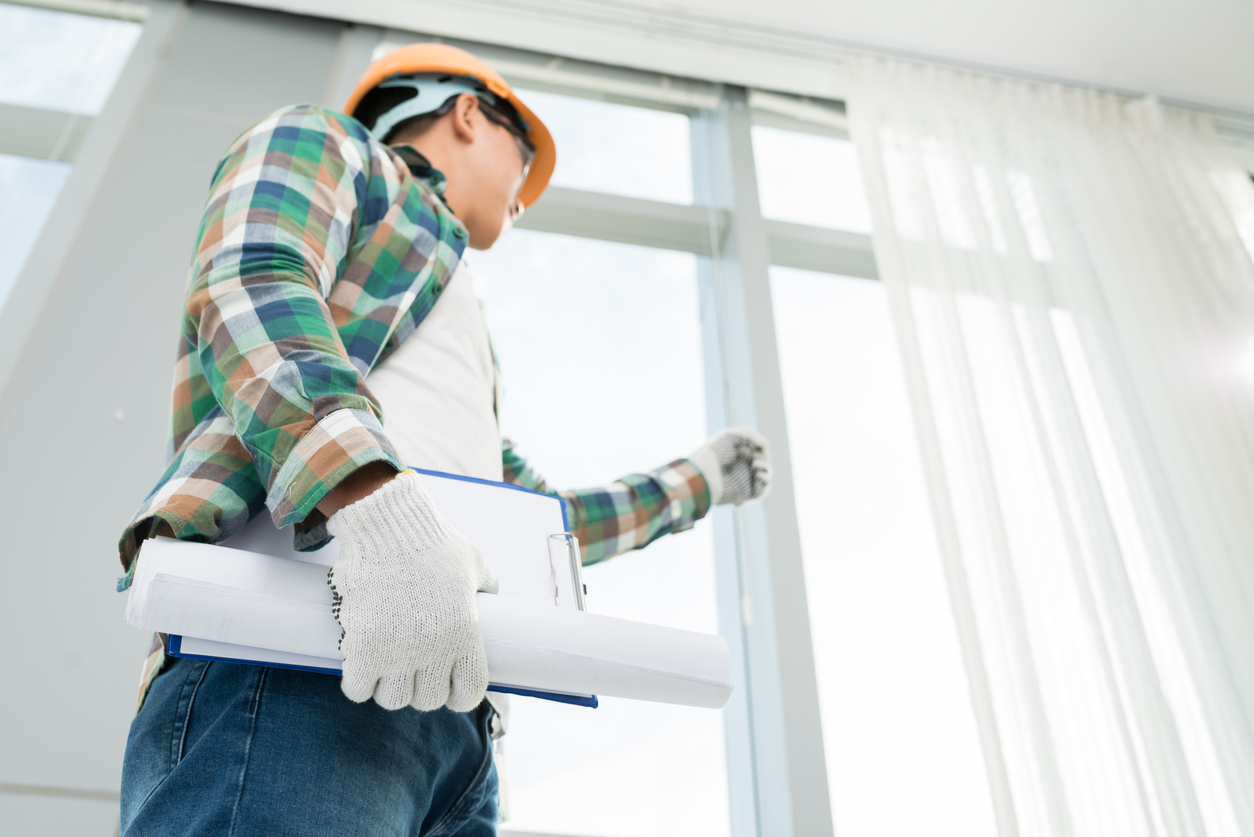What is a Home Inspection?
During a home inspection, a licensed inspector will spend, at minimum, two hours in your potential home. An inspector is trained to look very closely at things that most of us, even tradespeople, might miss. They’ll go through each room in your home, the basement and outside, and when done, will put together a detailed report for you.
Not every state offers a professional licensing program for home inspectors. However, several national organizations — the American Society of Home Inspectors, the National Association of Home Inspectors or the International Association of Certified Home Inspectors — offer testing programs and continuing education. Be sure to verify your state’s particular requirements and check the license of your inspector.
What Does a Home Inspector Do?
Home inspectors use their eagle eyes to catch things in a house or condo that are safety concerns and may need to be repaired to bring the property up to code. On a new build, they’ll also point out cosmetic issues or poor quality, like damaged trim or dented window casings. Here are some of the most common issues an inspector will be looking for:
- Faulty wiring
- Loose electrical boxes and fixtures
- Failing heating and cooling systems
- Leaky plumbing
- Structural cracks in the foundation
- Chimney issues
- Roof condition
- Poor drainage of exterior water
- Condition of water heater and furnace
- Drafty attics and poor insulation
- Gaps around doors and windows
Often, home inspectors have a background in construction themselves. Having built houses, they have deep knowledge of what potential problems to look for, saving you future headaches or letting you know what you’re in for if you choose to take on significant repairs yourself.
Advantages of a Home Inspection
It can’t be overstated how important having a home inspection is. Worst case, your potential home is perfect, and you now know that for sure. Less ideal is that you find several minor issues or maybe even something larger ahead of time and can negotiate either the fix or a price reduction with the seller. Both options are certainly better than chancing it without an inspection and finding out later that you have a major structural repair to do that will cost you tens of thousands of dollars.
An inspection can save you money right away, but it also provides a baseline for you in the case of future repairs. It can be helpful to know three or five years down the line that your foundation was in great condition when you bought the house, so cracks must have been caused by something during the past few years. This can help determine the cause of new issues and work out the best solution to prevent it from happening again or from getting worse.
What a Home Inspector Doesn’t Do
Home inspectors have an extensive knowledge base overall, but they don’t handle everything in your prospective new home. Here are the things they don’t do:
- Evaluate phone lines, cable connections, internet connections, or satellite receivers
- Assess the property line
- Assess alarm systems
- Move furniture (they can decline to inspect areas that might seem unsafe or impassable, like an attic or crawlspace)
- Test for mold, mildew, lead paint, or asbestos
- Test for any other toxic substances or hazardous waste conditions
- Water quality testing
- Assess the likelihood of pest infestations, like termites
- Provide cost estimates to fix or make repairs
- Provide an estimate of the value of the property
Everything on the list above falls under the specialization of another professional. For example, a qualified professional can perform a Home Energy Assessment to test for things like gas leaks, and you can call an exterminator to make sure you don’t have a pest problem.
What a Home Inspection Report is Used For
There are two kinds of home inspections — one is a pre-listing report that the seller pays for to streamline the buying process. This report gives the buyer information upfront about the home and any issues it might have, letting them know that those issues have already been factored into the price. The second is a home inspection paid for by the buyer. Even if the seller has a pre-listing inspection done, it’s not uncommon for the buyer to have their own inspection commissioned, as well — this instills the buyer’s confidence.
When you receive your home inspection report, you’ll have to decide if anything on it is worth taking to the seller to have fixed before you purchase the property or reduce the asking amount. These days, sellers expect to negotiate based on a home inspection, so don’t feel awkward taking this to them. Even new builds frequently have issues!
You’ll use your report to justify a price reduction or as a guide to let the seller know what they need to fix. Be sure to keep a copy for your records too.
Bottom Line
Breathe in, breathe out, and pay a good home inspector. Yes, it’s an extra cost, but it can save you a breathtaking amount of money and headaches in the long term. On average, home inspections in the US cost between $300 and $450. This amount can fluctuate based on the size of the home, the number of bathrooms, complexity, etc. Whatever size of home you’re looking at purchasing, a home inspection is well worth the cost.




